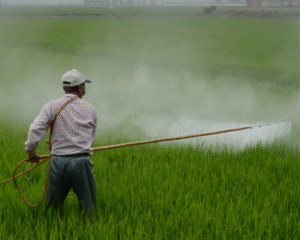Organic Contaminants in the Aquatic Environment — Sampling and Laboratory Techniques – Online – January 26th & 29th, 2026
-
01/26/2026 - 01/29/2026
9:00 am - 11:00 am Pacific Time


Location: Fully online
Focusing on solvents, pesticides, and pharmaceuticals/personal care products (PPCPs), the course explores how these everyday compounds—originating from households, agriculture, and industry—move through air, water, soil, and organisms. Students will learn why some organics break down quickly while others persist for decades, and how this affects their behavior, toxicity, and potential for bioaccumulation.
The MicroCourse also introduces the key steps in sampling and analysis for water, sediment, and tissue. Participants will gain insight into field and lab techniques used to detect organic contaminants, including how to avoid cross-contamination and interpret results in line with environmental and health guidelines.
Interactive components, including group discussions, case studies, and knowledge checks, help simplify complex chemistry concepts and relate them to real-world applications.
Topics include:
- Types and sources of organic contaminants
- Mobility, persistence, and bioaccumulation
- Sampling methods for water, sediment, and tissue
- Handling, transport, and lab analysis
- Environmental and human health considerations
This MicroCourse is ideal for environmental professionals, technicians, and anyone working in water quality monitoring or environmental assessment. It offers a clear, engaging foundation for understanding how organic chemicals behave in the environment and why monitoring them is essential for protecting ecosystems and public health.
Format: 2 x 2-hour sessions.
